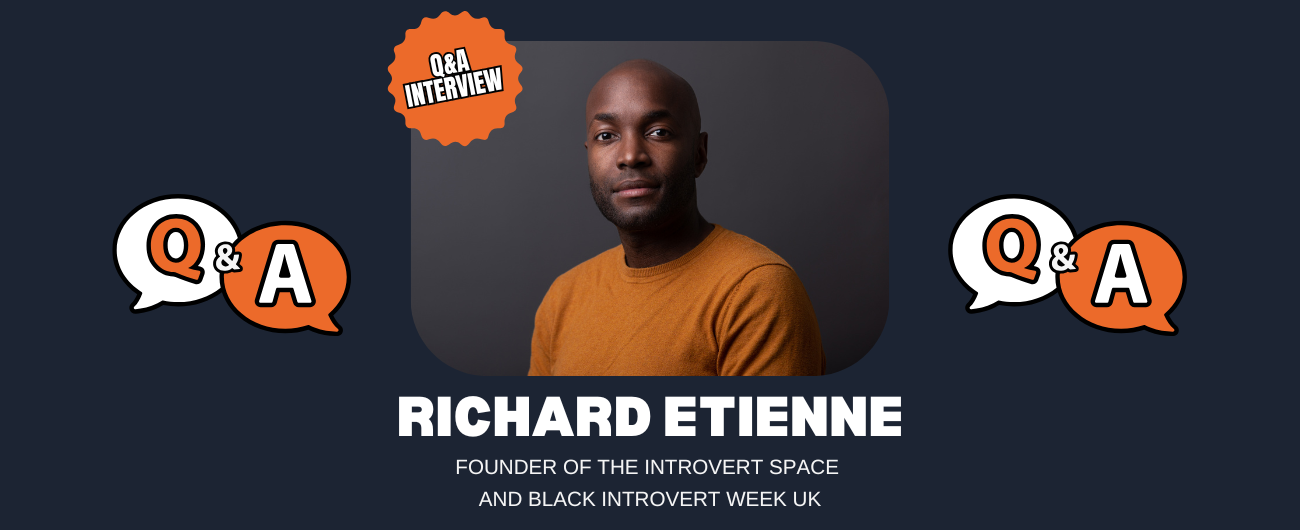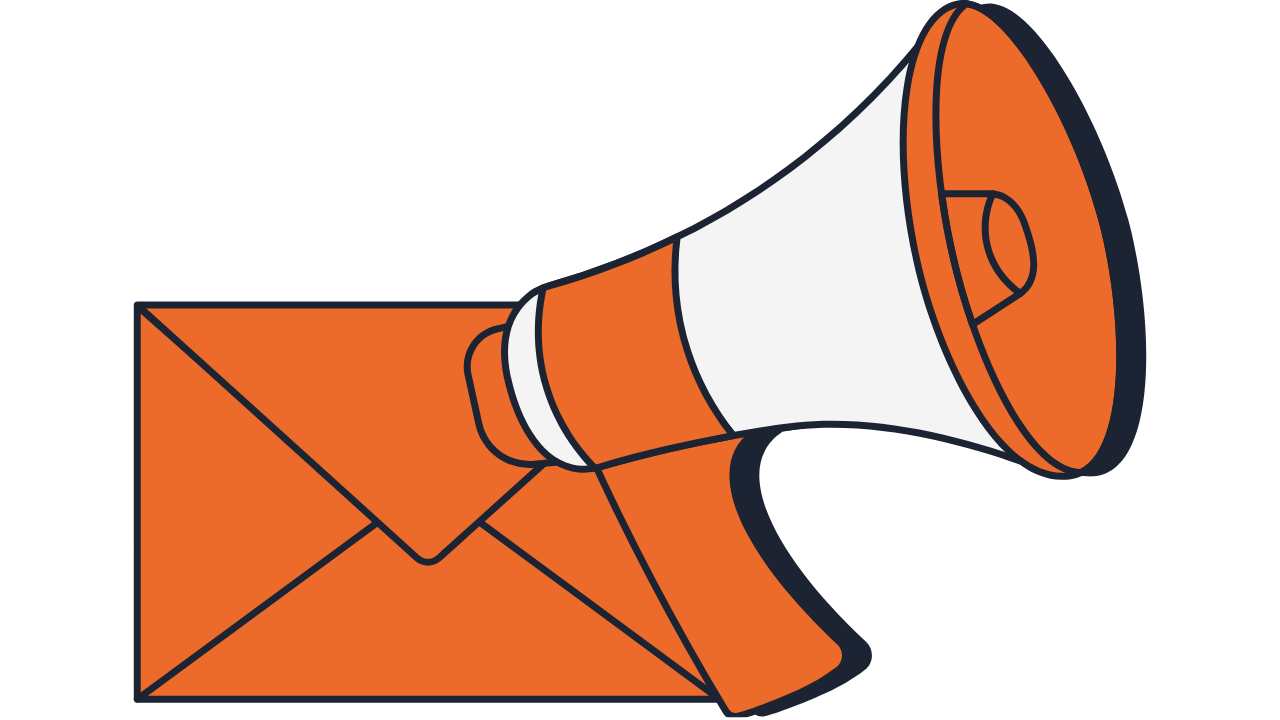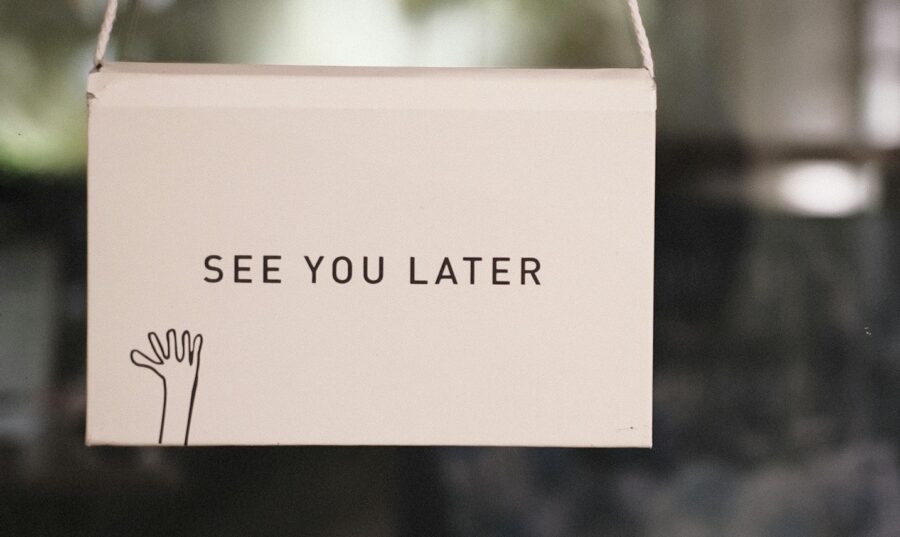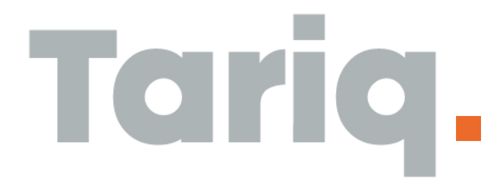From documenting local businesses as a young videographer to capturing the inner workings of 10 Downing Street, Richard Etienne’s career has been rooted in amplifying the voices of others, especially those often overlooked.
But behind the camera and beyond the job titles, he spent years quietly navigating spaces where he never quite felt like he fit in. It wasn’t until he discovered the work of Susan Cain that he fully embraced his identity as an introvert and realised it wasn’t a weakness, but a strength.
Today, he’s the founder of The Introvert Space, a platform built to challenge stereotypes, celebrate quiet power, and reshape how organisations approach personality diversity.
Whether he’s leading Black Introvert Week UK, advising leaders on inclusive communication, or championing reflective leadership in high-pressure environments, Richard continues to show that you don’t need to be loud to be heard—you just need to be intentional.
A must-read if you’ve ever felt out of place in loud rooms, questioned your leadership style, or want to build a personal brand without compromising who you are.
“It was only when I read Susan Cain’s book Quiet and watched her TED Talk that I realised I’m part of this wonderfully large group called introverts.”
What personal experience shaped your decision to create The Introvert Space?
I love storytelling. I love people’s stories. I’ve been like that from a very young age, which is why I started out as a videographer for local businesses, telling their stories. I’m in my 40s and YouTube wasn’t around back then, so people paid a lot of money to have a website, and to have a video on there at the time was mad! So, being able to provide that story for people in my community was wonderful.
Join the £1M Visibility Blueprint
Weekly insights from my £1M personal brand journey. Strategy, visibility systems and earned media plays you can use now.
Did you ever feel like you didn’t fit in before realising you were an introvert?
I’ve never really felt like I fit in anywhere. I’ve worked in offices, and I was always made to feel a bit of an outsider because I didn’t do the going out for drinks thing regularly. I wasn’t particularly chatty or loud, or like the stereotypical loudness that white or English people think we are as Black people.
I began to think something was wrong with me. It was only when I read Susan Cain’s book Quiet, and watched her TED Talk, that I realised I’m part of this wonderfully large group called introverts. It’s not about shyness or communication weakness. It’s about energy. I find large social interactions quite draining and prefer not to be the centre of attention unless I’ve asked for it.
“It’s not about shyness or communication weakness. It’s about energy.”
What was your vision for The Introvert Space once you embraced that identity?
The Introvert Space was created to empower and inform introverts like myself and to let them know you’re not weird or strange. You’re part of a wonderful community, and here’s how to display your quiet powers in this extrovert-favouring environment.
The second part is to support and inform organisations to understand personality diversity and make the environment more inclusive so introverts, extroverts, ambiverts, and all the verts can work positively together.
You worked inside Number 10 Downing Street. How did that come about?
The story from recording local businesses to stepping on a small plane with a Prime Minister and going around the world and filming her came about because of hard work. Specifically, if I had to boil it down, I led social media comms on CHOGRM (the Commonwealth Heads of Government Meeting). It was held in London and was the largest event hosted since the 2012 Olympics. I had the privilege of leading video communications for it.
That gave me access to high-profile places and people like Buckingham Palace, meeting the Royal Family, the late Queen and interviewing many heads of state for different Commonwealth countries.
Once that was wrapped, I was about to join the Home Office and become the videographer for Sajid Javid, who was the Home Secretary at the time, but Downing Street called. Their videographer was stepping down, and my manager put me forward straight away.
I owe him a lot because he put me forward straight away. I presume that’s to do with the quality of work, hard work, consistency and all of that, and a bit of security clearance as well, I must add.
What was it like working directly with Theresa May as an introvert?
To work for a prime minister like Theresa May, who herself is introverted, was just wonderful, because the great thing is I get to tell her story. For me personally, being behind the camera removes the focus on me, on my personality, or people worrying about how I behave, but more on my output.
Being able to naturally connect with someone like Baroness May was wonderful. I think introverts succeed in these high-stakes environments because of that calm, considered focus. This is why I advocate regularly for organisations or institutions that recognise and support the style of work introverts have.
“I invite organisations and individuals not just to co-create with us, but to be part of a movement – one that transforms how the world sees, supports, and celebrates introverted voices.”
In your opinion, what does inclusive leadership look like in practice when it comes to introvert leaders in the workplace?
In practice, it’s about identifying those high-focused, high-paid, fast-paced environments where introverts could fall behind to louder voices. For example, meetings. Could the chair rotate the responsibilities or the roles of meetings? Do teams have rotating chairs for staff? Is it always the same person who conducts the meeting?
If you think about artwork, when we go to the gallery, you could go with your friends, and you’d all look at the same piece of artwork, but have very different views and opinions of what you see in front of you. This is the same with meetings, in my opinion. If you have the same chair who directs and leads the same way, the discussion may only ever go one way. But let’s rotate that.
Do we offer written input as well as verbal input? Introverts are known for preferring written communication over talking or just having extra time to reflect and then produce whatever ideas they may have. So, in practice, those are some of the things.
Is there a link between being introverted and struggling with self-promotion?
Yeah, self-promotion is a tough one. As I mentioned earlier, for me personally, I don’t like the spotlight unless I’ve asked for it. Self-promotion is essentially you having to ask for it. It’s like, well, I don’t want to ask for it too much because then it might feel a bit boastful. Self-promotion can feel quite boastful to many introverts.
What I try to do at The Introvert Space is reframe it as storytelling and value sharing. We don’t find it difficult at all to tell the story of some great work that someone else did, and it doesn’t sound boastful at all. So why can’t we do that about our own work? We’re not doing it about us. Richard is not boasting about Richard. Richard is telling the story of the value that my work brought to somebody else. This could be the same for you.
How do you put that into practice personally?
One way that I tend to do it in practice is if I find I’m struggling to talk about my work, I get other people to do it. For example, a real-life example, we’re having this conversation, great discussion. After this, you may reach out to me and say, “Hey Richard, I really enjoyed this chat that we had. Would you mind if you share a recommendation on my LinkedIn to say how much you enjoyed it?” Because now that way I’m glowing. I’m talking about your work. It’s me saying, this guy is awesome. You don’t have to do anything. Third-party credibility beats self-hype.
“Introverts succeed in high-stakes environments because of that calm, considered focus.”
What role has imposter syndrome played in your journey?
Yeah, so I had it in the earlier parts of my journey, especially public speaking, because I just genuinely thought that it wasn’t something I could do.
How did you manage to overcome that?
What I did to get over that was not to jump straight into the deep end but to incrementally grow. I started with public speaking online, so all I’m doing is looking at this little camera on my laptop. Then I was able to upgrade to a studio, there’s a production team and a few people around the corner, and then upgrade that to a town hall. In the companies I was working for, again, it’s only a handful of people in there, and then just slowly it grows like that. That was the way that I managed it.
Also, looking back is key. What we often do, especially when we’re ambitious and quite hard working, is we just always look forward. What’s the next milestone? What’s the next leap we can take? My whole thing is like, look, and I keep a journal, because look how much I achieved this year. These are the things I didn’t think I could do the year before. That means that next year, I’ll be able to do things that I currently don’t think I can do now.
So yeah, I think public speaking was one of them. And I think also being behind the camera, especially at Number 10 and watching all these world leaders talk publicly, often without a script and just speaking from a place of passion and authenticity, not all of them, but the majority, again, it gave me confidence that it’s something I can do.
So yeah, that’s how I manage it. But for everyone, I would always say: take a look back.
“You’re not weird or strange. You’re part of a wonderful community, and here’s how to display your quiet powers in this extrovert-favouring environment.”
You’ve worn many hats, from videographer to comms, creative director and public speaker. What’s helped you reinvent yourself while staying rooted in purpose?
I remember dating this girl many years ago, and she told me that her English teacher described life, the narrative of life, like a washing line. You just hang different elements to it, like clothing, but in terms of life, chapters or choices. If I could describe what that washing line is, that whole narrative, it is around storytelling.
Each role or direction that I go is to amplify others through storytelling. With filmmaking, it’s to promote other people’s achievements, whether it’s their business or their profession, their policies and so forth. My first ever documentary was to tell the story of my late father and also the story of Dominica.
Whether it’s from filming world leaders to internal comms, it’s to amplify the voices whose desire is to make positive change in the world. We know how powerful communicative approaches, the written or visual word, are to human behaviour.
We have such a powerful tool within us in terms of storytelling and the narrative that we put out there. That’s how I stay rooted in my purpose. My purpose is to amplify the voices of others, the ones that are putting positive words out there. So, any choice I make, I make sure I’m like, okay, but does it do this, and does it stick to the mission? That’s what keeps me going.
What’s your approach to building your personal brand authentically as an introvert?
This is a great way, speaking with other people on interviews, shows, podcasts, etc., because as introverts, we’re really good at this one-to-one kind of conversation approach.
Another thing that I tend to do is build my platform through meaningful projects. Black Introvert Week UK is another one where I connect with other like-minded individuals who are just awesome. We are all promoting each other through this project, which is lovely because you get to connect with their audiences, they get to connect with yours, and that kind of compound interest grows.
I think also doing that at a time when the conversation may seem to be waning in what you’re an expert or a specialist in, that’s another opportunity to build presence. It’s about how you can use what people are discussing now to also draw attention to what you do.
What’s Black Introvert Week UK about this year, and how are you collaborating to make the event memorable?
This year is about leadership. This would be our fourth year. The first year was more just to check in and say: Hey, is this even a thing that people want to talk about? Turns out it was.
Year two, we looked at education. Year three, we looked at young people. Now we’re looking at senior leaders, or just leadership, rather. Not so much the senior part. We’ve got a great panel of speakers ranging from recent graduates all the way up to senior directors and so forth, from the U.K. across to the U.S. It’s really great.
In terms of collaboration, I do my best to collaborate with a lot of allyships and organisations that want to help. Our event sponsors this year again are Kubrick Group, a wonderful organisation who have the drive or desire to promote personality diversity and understand the intersectional balance between introversion and neurodiversity, introversion and race, and so forth.
So yeah, it’s great to work with these types of organisations. We’re always on the lookout for other organisations to support or sponsor us so we can keep this dialogue going for as long as possible.
“We don’t find it difficult to tell the story of great work someone else did…So why can’t we do that about our own work?”
What legacy do you want Black Introvert Week UK to leave?
It will be collaborating with global partners, organisations and communities. The goal is essentially to make introvert awareness or personality diversity systems-level inclusion.
Training that happens at onboarding, especially in large organisations, when we have to do the whole onboarding training, we get to that part where we talk about protected characteristics. Great. I’m in favour of that. But for some bizarre reason, personality, which we all have, is not part of that training. It would be wonderful if it were more than just awareness.
For Black Introvert Week UK, I want that to ripple beyond October. Every time we have a live event and there are questions and discussions happening there, we take that information and then turn it into toolkits, eBooks, courses, things that companies can take on for the long term and continue to include at a systems-based level.
We’ll always try our best to partner or pair storytelling with institutional action so that it’s embedded into organisations.
What’s next for The Introvert Space and Black Introvert Week UK?
I’ve realised that there’s not a lot of data out there when it comes to personality or introversion. So, I’m working with Ipsos Karian and Box, one of the largest data collectors in this country, to work with large organisations to start focus groups and gather data, so that a lot of the policies in place for organisations are data-led.
Numbers matter. I think Jay-Z said, “Men lie, women lie, numbers don’t.” It’s important for data to be present so that it serves as a positive influence in the discussion. That’s what’s next for The Introvert Space: getting data so we can amplify our voice in a data-led way.
In terms of Black Introvert Week UK, as I touched on earlier, it’s about expansion and upscaling. If we can get sponsorship or partnerships with some organisations, that will help us to get out there a bit more.
So, I invite organisations and individuals not just to co-create with us, but to be part of a movement, one that transforms how the world sees, supports, and celebrates introverted voices.
Join the waitlist for this year’s Black Introvert Week UK event here.





